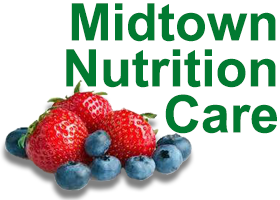INFLAMMATION
Inflammation is a natural and important part of the body protecting itself. However, chronic inflammation can be harmful and can be a component of diseases such as arthritis, psoriasis and heart disease.
CAN FOOD AFFECT INFLAMMATION?
There are some foods that have an inflammatory effect on the body and can raise inflammation. These foods include simple and refined carbohydrates (sugar cereals, sweetened beverages, junk foods), processed foods (high in nitrates), fast foods and high fat meats (high in saturated fats). Processed foods and foods with higher saturated fats in general have a higher level of arachidonic acid, which is associated with inflammation and chronic disease.
WHAT FOODS ARE ANTI-INFLAMMATORY?
A diet rich in whole foods may help reduce inflammation. Choose a variety of fruits and vegetables rich in color. These foods are high in antioxidants, which fight free radicals and may reduce inflammation. Choose apples, berries, cherries, pomegranate, broccoli, spinach, kale, cabbage. Also choose salmon, cod, tuna, sardines, herring, mackerel, walnuts, almonds, flax, chia seeds, hemp seeds, edamame, sunflower seeds, seaweed and avocado.
TIPS TO INCLUDE ANTI-INFLAMMATORY FOODS
Instead of cakes, chips and cookies choose fresh fruit, veggies, and small handfuls of nuts and seeds.
Have a glass of warm or chilled green tea in place of sodas or sweetened teas.
When cooking, choose olive oil, canola, grape seed or avocado oils.
Spice up your dishes with garlic, chili peppers, ginger, cinnamon, oregano and turmeric.
